Datasheet
Year, pagecount:2018, 3 page(s)
Language:English
Downloads:2
Uploaded:October 08, 2020
Size:1 MB
Institution:
-
Comments:
Attachment:-
Download in PDF:Please log in!
Comments
No comments yet. You can be the first!Most popular documents in this category
Content extract
Source: http://www.doksinet 25 September, 2018 North Korea at 70: ‘Reform without Opening’ under Kim Jong-un Dr. Jojin V John * North Korea once again gained international media attention on the occasion of its 70th foundation day anniversary on September 9, 2018. The celebration in Pyongyang included a scaled down military parade with no display of ballistic missiles and “mass games”, a show with artistic and gymnastic display held since 2013. The celebration this year emphasized the theme of economic development compared to previous years focus on displaying military prowess. Overall emphasis on economic development is in sync with Pyongyang’s new strategic line of “all for the economy” announced during Kim Jong-un’s New Year speech in January 2018 and recently during ruling party’s Central Committee meeting in April 2018. “All for the economy” approach of the regime has evolved in the context in which North Korea declared that the goals of byungjin policy
were achieved.1 Kim Jong-un’s announcement of “all for the economy” and reforms initiative taken during the last five years have led some scholars to argue that North Korea is moving into a ‘reform and opening’ path that is comparable to China under Deng Xiaoping in the late 1970s. A Chinese style ‘reform and opening’ of North Korea may well be in the realm of wishful thinking. Kim Jong-un has no other choice but to improve the economic situation to legitimise his rule. However, reform measures that the regime takes will be limited. It is the unique situation of North Korea being a poor and divided country with a strong determination to survive, forcing its leadership to undertake reforms to improve economy but short of opening it substantively to the outside world. Much of the discussion on reform in North Korea is based on the performance of its economy under Kim Jong-un since he assumed power in the late 2011. According to South Korea’s central bank, Kim Jong-un’s
North Korea has recorded an average two per cent annual economic growth. In 2016, economic growth reached 39 per cent, the highest in the last seventeen years2 The momentum in economic growth is reflected in everyday North Korean life with more cars on Source: http://www.doksinet ICWA View Point the streets, a new wave of consumerism and a construction boom, not only in Pyongyang but also in provincial cities and countryside. The reform however, had its origin in the late 1990s and early 2000s, when the statist economic model collapsed due to the worst famine in the modern history of the country and loss of economic aid after the collapse of the Soviet Union. When the state controlled public distribution system failed people turned to alternative sources for food and basic amenities, leading to the creation of the so called jamadang or informal markets. Though illegal under law, Pyongyang tolerated informal markets out of fear that curbing them may lead to a total breakdown of the
economy. Over time the market phenomenon has expanded to include all majors sectors of the economy. In the post-famine period it was observed that three-fourth of the North Korean household income came from these informal economic activities.3 During the second half of the last decade, fearing its growing impact, then leader Kim Jong-il attempted to roll back market activities through various policy measures, but these largely failed. Under Kim Jong-un, Pyongyang not only recognized the spontaneously emerging market but also introduced reforms that are very radical. Three initiatives are worth mentioning in this context. Under Kim Jong-un agriculture has become a house hold responsibility Under the new system, farmers need to give only one-third of what they produce to the state and are free to keep the remaining. Until the new initiative referred to as "June 28th Measures" introduced in 2012, agriculture was managed under a large cooperative and all that was produced had to
be submitted to the state. The new initiative helped North Korea to achieve near food self-sufficiency Second, under Kim’s watch Pyongyang also embarked on radical steps in the management of state-owned enterprises (SOE) by amending Enterprise Act in 2014. The new law permitted autonomy for SOE managers to make decisions related to production, foreign trade, joint ventures and accepting domestic private investment. Third, Kim has also been working to build the North Korean version of chaebols, broadly diversified privately owned large business conglomerates which are closely tied to the state, party and the military. Despite the reform initiatives, it is a mistake to assume that such developments are resulting in North Korea’s opening up. Accommodation of the market was the last resort of the regime to save itself from collapsing and it is seen as nothing but a necessary evil. The regime is increasingly aware of the cracks in the information wall that it built to keep its subjects
in the dark. The information flow into the country since the mid-1990s made North Korean people aware of their deprived economic status in comparison to prosperity in outside world especially in South Korea. Along with economic reform, Kim Jong-un’s North Korea is also witnessing an increasing control over its population and borders. Pyongyang introduced advanced technological means to monitor everyday life of people, curb information flow and international travel. For instance, the North Korea-China border once porous and uncontrolled is now under high surveillance. The tightening of the border is reflected in the reduction of North Koreans defecting to South Korea 2 | www.icwain Source: http://www.doksinet ICWA View Point via China during Kim Jong-un’s rule. The recent news about the emergence of ‘cultural police’ in North Korea to detain people with politically incorrect haircut is an example of the increasing tendency of the regime to control the social behavior of its
citizens. North Korea going down the Chinese path is unlikely anytime soon. In a quest to survive, the regime may accommodate limited reform but has less chance to open up the country to the outside world. The factor that stops North Korean elites from taking such a decision is its unique situation of being a divided country with an exceptional economic and political differences with its brethren in the south of the Korean Peninsula. The per capita income difference between North Korea and South Korea is somewhat of the order of 1:20. With its economic affluence and political freedom, the way of life in South Korea will become attractive to North Korean people. Opening up the country could trigger a popular desire for Seoul led unification. In the context of a South Korean led unification it is not only the loss of power and privilege that the North Korean elites are afraid of but also retribution. While the changes in North Korea are profound, the regime is also proactive in not
letting the situation go out of control. For the time being Kim Jong-un seemingly is in control of the country, which allowed him to make risky diplomatic maneuvers during the last eight months. Only time will tell how Kim’s complex moves will play out. * * Dr. Jojin V John, Research Fellow, Indian Council of World Affairs, New Delhi Disclaimer: The views expressed are that of the Researcher and not of the Council. Endnotes 1 Byungjin policy was announced by Kim Jong-un in 2013 emphasising parallel development of the economy and nuclear weapons. Following the successful testing of a miniaturised nuclear weapon and an intercontinental ballistic missile last year, Pyongyang declared the accomplishment of its nuclear mission. 2 Rosamond Hutt, "North Koreas economy grew nearly 4% last year - despite sanctions", World Economic Forum, August 31, 2018,
https://www.weforumorg/agenda/2017/08/north-korea-s-economic-growth-wasat-a-17-year-high-in-2016-so-which-countries-was-it-trading-with/ 3 Andrei Lankov, “The Real North Korea: Life and Politics in the Failed Stalinist Utopia”, New York: Oxford University Press, 2013, p. 82 3 | www.icwain
were achieved.1 Kim Jong-un’s announcement of “all for the economy” and reforms initiative taken during the last five years have led some scholars to argue that North Korea is moving into a ‘reform and opening’ path that is comparable to China under Deng Xiaoping in the late 1970s. A Chinese style ‘reform and opening’ of North Korea may well be in the realm of wishful thinking. Kim Jong-un has no other choice but to improve the economic situation to legitimise his rule. However, reform measures that the regime takes will be limited. It is the unique situation of North Korea being a poor and divided country with a strong determination to survive, forcing its leadership to undertake reforms to improve economy but short of opening it substantively to the outside world. Much of the discussion on reform in North Korea is based on the performance of its economy under Kim Jong-un since he assumed power in the late 2011. According to South Korea’s central bank, Kim Jong-un’s
North Korea has recorded an average two per cent annual economic growth. In 2016, economic growth reached 39 per cent, the highest in the last seventeen years2 The momentum in economic growth is reflected in everyday North Korean life with more cars on Source: http://www.doksinet ICWA View Point the streets, a new wave of consumerism and a construction boom, not only in Pyongyang but also in provincial cities and countryside. The reform however, had its origin in the late 1990s and early 2000s, when the statist economic model collapsed due to the worst famine in the modern history of the country and loss of economic aid after the collapse of the Soviet Union. When the state controlled public distribution system failed people turned to alternative sources for food and basic amenities, leading to the creation of the so called jamadang or informal markets. Though illegal under law, Pyongyang tolerated informal markets out of fear that curbing them may lead to a total breakdown of the
economy. Over time the market phenomenon has expanded to include all majors sectors of the economy. In the post-famine period it was observed that three-fourth of the North Korean household income came from these informal economic activities.3 During the second half of the last decade, fearing its growing impact, then leader Kim Jong-il attempted to roll back market activities through various policy measures, but these largely failed. Under Kim Jong-un, Pyongyang not only recognized the spontaneously emerging market but also introduced reforms that are very radical. Three initiatives are worth mentioning in this context. Under Kim Jong-un agriculture has become a house hold responsibility Under the new system, farmers need to give only one-third of what they produce to the state and are free to keep the remaining. Until the new initiative referred to as "June 28th Measures" introduced in 2012, agriculture was managed under a large cooperative and all that was produced had to
be submitted to the state. The new initiative helped North Korea to achieve near food self-sufficiency Second, under Kim’s watch Pyongyang also embarked on radical steps in the management of state-owned enterprises (SOE) by amending Enterprise Act in 2014. The new law permitted autonomy for SOE managers to make decisions related to production, foreign trade, joint ventures and accepting domestic private investment. Third, Kim has also been working to build the North Korean version of chaebols, broadly diversified privately owned large business conglomerates which are closely tied to the state, party and the military. Despite the reform initiatives, it is a mistake to assume that such developments are resulting in North Korea’s opening up. Accommodation of the market was the last resort of the regime to save itself from collapsing and it is seen as nothing but a necessary evil. The regime is increasingly aware of the cracks in the information wall that it built to keep its subjects
in the dark. The information flow into the country since the mid-1990s made North Korean people aware of their deprived economic status in comparison to prosperity in outside world especially in South Korea. Along with economic reform, Kim Jong-un’s North Korea is also witnessing an increasing control over its population and borders. Pyongyang introduced advanced technological means to monitor everyday life of people, curb information flow and international travel. For instance, the North Korea-China border once porous and uncontrolled is now under high surveillance. The tightening of the border is reflected in the reduction of North Koreans defecting to South Korea 2 | www.icwain Source: http://www.doksinet ICWA View Point via China during Kim Jong-un’s rule. The recent news about the emergence of ‘cultural police’ in North Korea to detain people with politically incorrect haircut is an example of the increasing tendency of the regime to control the social behavior of its
citizens. North Korea going down the Chinese path is unlikely anytime soon. In a quest to survive, the regime may accommodate limited reform but has less chance to open up the country to the outside world. The factor that stops North Korean elites from taking such a decision is its unique situation of being a divided country with an exceptional economic and political differences with its brethren in the south of the Korean Peninsula. The per capita income difference between North Korea and South Korea is somewhat of the order of 1:20. With its economic affluence and political freedom, the way of life in South Korea will become attractive to North Korean people. Opening up the country could trigger a popular desire for Seoul led unification. In the context of a South Korean led unification it is not only the loss of power and privilege that the North Korean elites are afraid of but also retribution. While the changes in North Korea are profound, the regime is also proactive in not
letting the situation go out of control. For the time being Kim Jong-un seemingly is in control of the country, which allowed him to make risky diplomatic maneuvers during the last eight months. Only time will tell how Kim’s complex moves will play out. * * Dr. Jojin V John, Research Fellow, Indian Council of World Affairs, New Delhi Disclaimer: The views expressed are that of the Researcher and not of the Council. Endnotes 1 Byungjin policy was announced by Kim Jong-un in 2013 emphasising parallel development of the economy and nuclear weapons. Following the successful testing of a miniaturised nuclear weapon and an intercontinental ballistic missile last year, Pyongyang declared the accomplishment of its nuclear mission. 2 Rosamond Hutt, "North Koreas economy grew nearly 4% last year - despite sanctions", World Economic Forum, August 31, 2018,
https://www.weforumorg/agenda/2017/08/north-korea-s-economic-growth-wasat-a-17-year-high-in-2016-so-which-countries-was-it-trading-with/ 3 Andrei Lankov, “The Real North Korea: Life and Politics in the Failed Stalinist Utopia”, New York: Oxford University Press, 2013, p. 82 3 | www.icwain
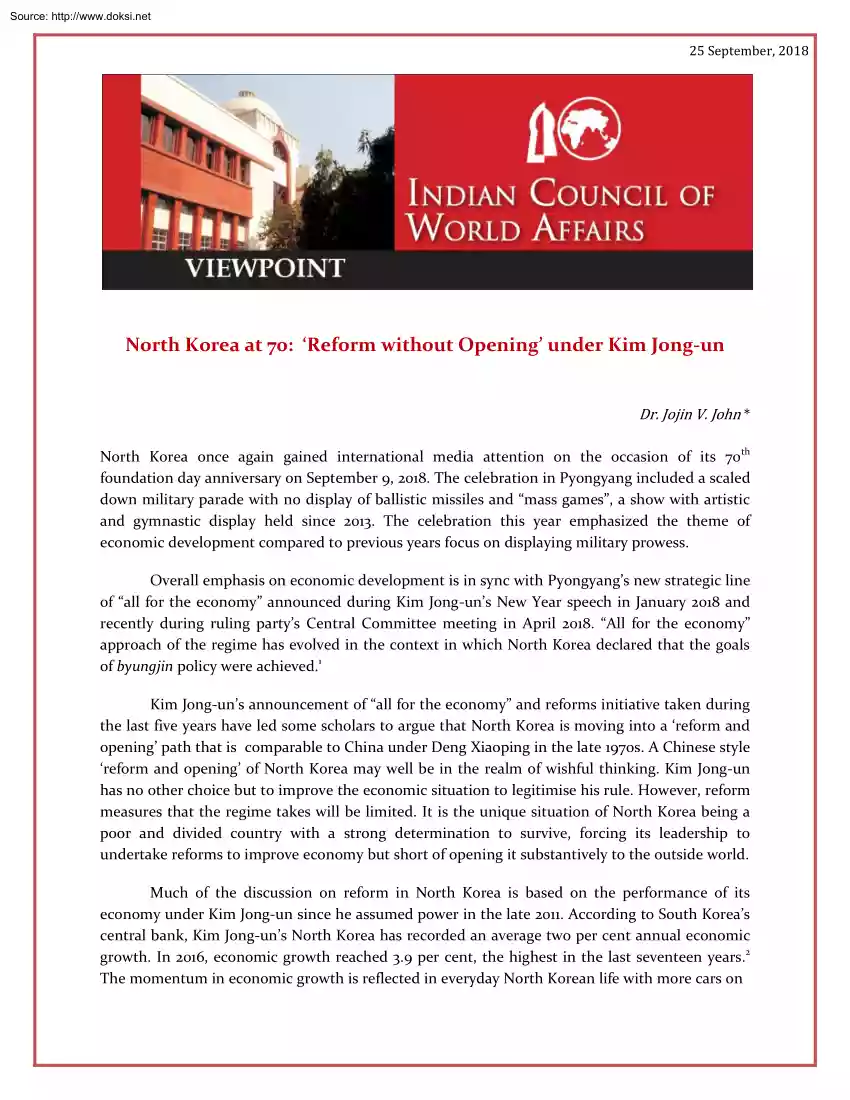
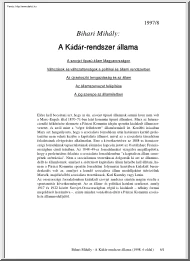
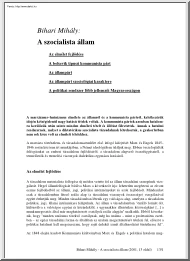
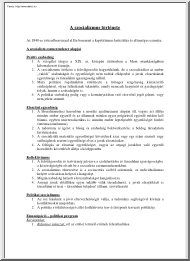
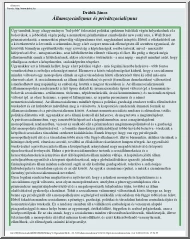
 Just like you draw up a plan when you’re going to war, building a house, or even going on vacation, you need to draw up a plan for your business. This tutorial will help you to clearly see where you are and make it possible to understand where you’re going.
Just like you draw up a plan when you’re going to war, building a house, or even going on vacation, you need to draw up a plan for your business. This tutorial will help you to clearly see where you are and make it possible to understand where you’re going.